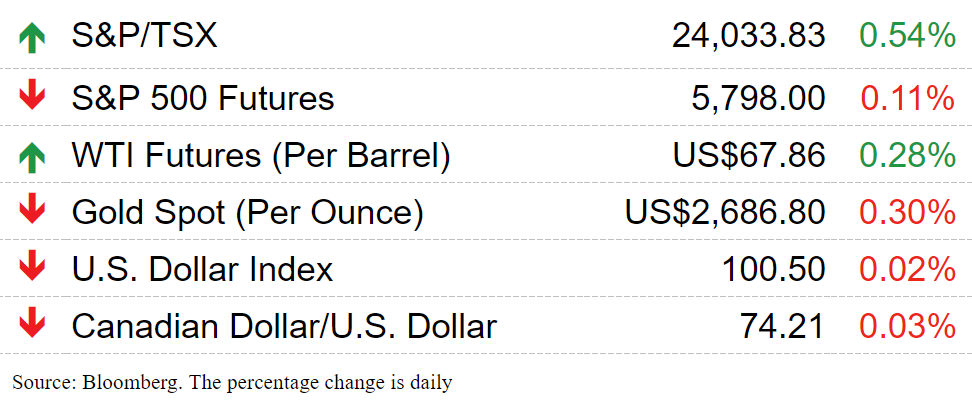Average base salaries for Canada’s non-unionized workers are expected to increase by 3.45%
Article content

Salary growth in Canada is expected to outpace inflation for the first time in four years, according to a new report by Telus Health.
Its annual Salary Projection Survey, based on data from more than 355 Canadian organizations across various industries, is projecting a 3.45 per cent increase in average base salaries for non-unionized workers in 2025, significantly exceeding the current inflation rate of two per cent.
Advertisement 2
Article content
“The persistent demand for skilled talent is driving robust salary growth into 2025, despite easing inflationary pressures on employers,” Guylaine Béliveau, national practice leader of compensation consulting at Telus Health, said in a release. “As inflation rates decline, employees stand to reclaim purchasing power lost in recent years. This shift could significantly boost individual financial wellbeing and overall workplace morale.”
The highest projected increases for 2025 are expected in the same industries that led salary growth in 2024: 4.13 per cent in construction, 3.92 per cent in real estate and 3.9 per cent in business services. Meanwhile, the lowest salary increase of 2.75 per cent is expected in public administration, supplanting information technology at the bottom.
The data also shows regional variations in provincial salary projections, with a 3.6 per cent increase expected in British Columbia, 3.54 per cent in Alberta and 3.5 per cent in New Brunswick leading the way. Nova Scotia, on the other hand, has consistently shown the lowest projected increases at 2.94 per cent for both 2024 and 2025. Quebec, which had strong salary growth of 3.85 per cent in 2024, is expecting growth to slow to 3.41 per cent in 2025.
Article content
Advertisement 3
Article content
But competitive salaries alone aren’t enough to attract and retain talent in the labour market. Due to ongoing challenges, 59 per cent of organizations have or plan to implement programs to enhance financial wellbeing, including health care, financial literacy education and group registered retired savings plans.
“In today’s evolving job market, employees are seeking more than just competitive salaries. They’re looking for employers who offer comprehensive support for their financial, physical and mental wellbeing,” Philip Mullen, vice-president of employer solutions consulting at Telus Health, said in the release.
“Organizations that partner with benefits administrators to create holistic packages — integrating retirement planning, investments and health services — are likely to see improved recruitment outcomes, higher retention rates and enhanced productivity.”
The top priorities for employers continue to be employee engagement and building critical skills for leaders, but there’s also an increasing focus on upskilling, training and development programs, and cultivating future leadership for 2025.
Advertisement 4
Article content
Companies are also focusing on the adoption of artificial intelligence, with 74 per cent either actively exploring or seriously considering AI solutions to boost operational efficiency in 2025.
Sign up here to get Posthaste delivered straight to your inbox.


Copper rallied back above US$10,000 a ton and iron ore broke through US$100 after China’s top leaders stepped up efforts to revive growth. The price of copper rose more than two per cent to a three-month high on the London Metal Exchange after the official Xinhua News Agency reported that China’s Politburo will push for the real estate market “to stop declining” and called for “forceful” rate cuts. — Bloomberg

- Today’s Data: Canada monthly real GDP for July, Ottawa’s fiscal monitor for July; U.S. personal income and consumption for August, advance economies indicators report for August, University of Michigan consumer sentiment index for September



Advertisement 5
Article content
Recommended from Editorial
-

Advances in AI mean corporations need to ensure staff are ready
-

Organizations should prioritize pay transparency to attract talent

Thanks to a spell of higher prices and interest rates over the past year, more Canadians have been feeling the pinch in their wallets — and the National Payroll Institute is sounding the alarm. About 41 per cent of working Canadians are financially stressed, up from 37 per cent last year, according to a report released Thursday from the association, which represents payroll workers and has been tracking Canada’s ongoing financial stress storm since 2021. Find out more.
Build your wealth
Are you a Canadian millennial (or younger) with a long-term wealth building goal? Do you need help getting there? Drop us a line with your contact info and your goal and you could be featured anonymously in a new column on what it takes to build wealth.
McLister on mortgages
Want to learn more about mortgages? Mortgage strategist Robert McLister’s Financial Post column can help navigate the complex sector, from the latest trends to financing opportunities you won’t want to miss. Plus check his mortgage rate page for Canada’s lowest national mortgage rates, updated daily.
Today’s Posthaste was written by Noella Ovid, with additional reporting from Financial Post staff, The Canadian Press and Bloomberg.
Have a story idea, pitch, embargoed report, or a suggestion for this newsletter? Email us at posthaste@postmedia.com.
Bookmark our website and support our journalism: Don’t miss the business news you need to know — add financialpost.com to your bookmarks and sign up for our newsletters here.
Article content
Salary growth is set to outpace inflation in Canada in 2025
2024-09-27 12:00:23







